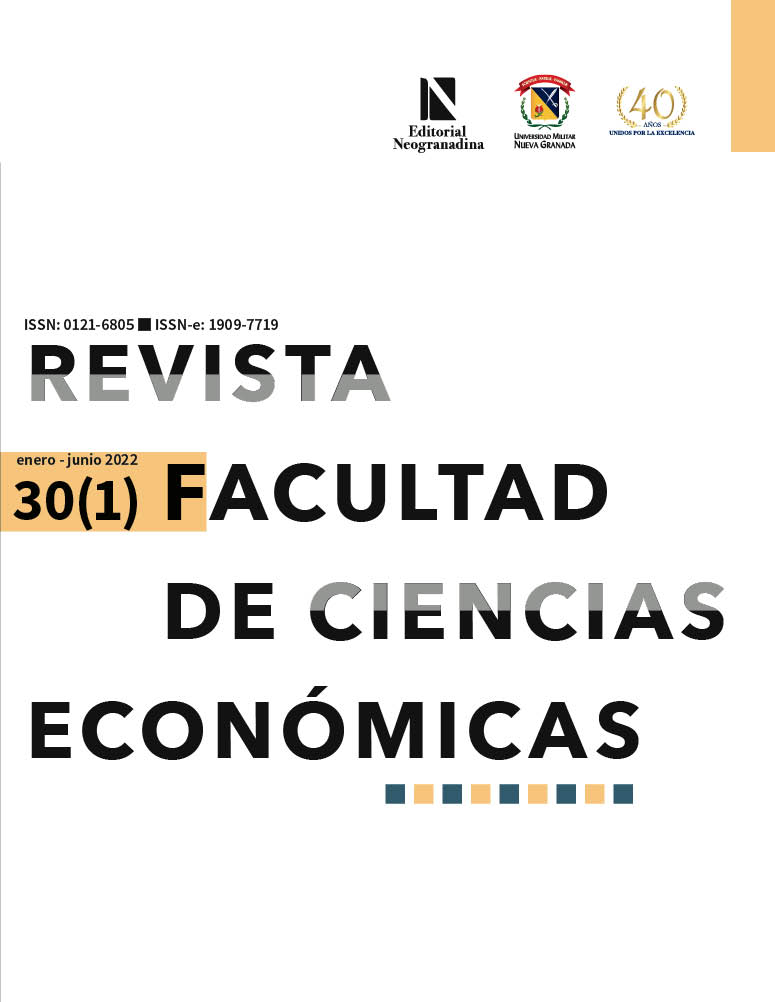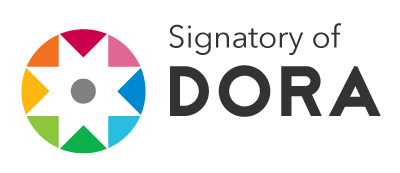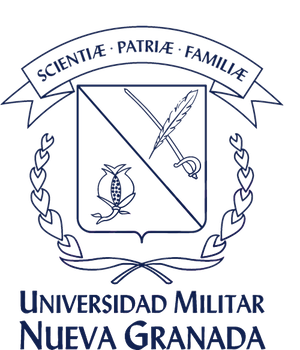Síndrome não inventado aqui, sabotagem do conhecimento e desempenho inovador
o papel da conscientização dos funcionários sobre a inteligência artificial
Resumo
Em escala global, as empresas continuam avançando na implementação de inteligência artificial e robotização para o desenvolvimento tecnológico e inovação de produtos e serviços; porém, para isso, encontram obstáculos internos, como a sabotagem do conhecimento e a síndrome do não-inventado-aqui, que dificultam o desenvolvimento de novos produtos. Este estudo analisa a relação entre a sabotagem do conhecimento, a síndrome do não inventado aqui, e o desempenho inovador e o efeito moderador da conscientização em torno da inteligência artificial e da robotização. O teste do modelo de pesquisa foi realizado usando equações estruturais em uma amostra de empresas de manufatura e serviços de média e baixa tecnologia em Medellín. Identificou-se que a síndrome não inventada aqui influencia positivamente na sabotagem do conhecimento e isso atua negativamente no desempenho inovador. As descobertas aumentam a literatura sobre um tema emergente na Colômbia, como a sabotagem do conhecimento, e incentivam pesquisas sobre o efeito da inteligência artificial e da robotização.
Downloads
Referências
Abubakar, A. M. y Arasli, H. (2016). Dear top Management, Please Don’t Make me a Cynic: Intention to Sabotage. Journal of Management Development, 35(10), 1266-1286. https://doi.org/10.1108/JMD-11-2015-0164
Ambrose, M. L., Seabright, M. y Schminke, M. (2000). Sabotage in the Workplace. Proceedings of the International Association for Business and Society, 11, 17-27. https://doi.org/10.5840/iabsproc2000113
Antons, D., Declerck, M., Diener, K., Koch, I. y Piller, F. T. (2017). Assessing the Not-Invented-Here Syndrome: Development and Validation of Implicit and Explicit Measurements. Journal of Organizational Behavior, 38(8), 1227-1245. https://doi.org/10.1002/job.2199
Antons, D. y Piller, F. T. (2015). Opening the Black Box of “Not Invented Here”: Attitudes, Decision Biases, and Behavioral Consequences. Academy of Management Perspectives, 29(2), 193-217. https://doi.org/10.5465/amp.2013.0091
Arias-Pérez, J. y Vélez-Jaramillo, J. (2021). Understanding Knowledge Hiding under Technological Turbulence Caused by Artificial Intelligence and Robotics. Journal of Knowledge Management, ahead-of-p (ahead-of-print). https://doi.org/10.1108/JKM-01-2021-0058
Arias-Pérez, J. y Vélez-Jaramillo, J. (2022). Ignoring the Three-Way Interaction of Digital Orientation, Not-Invented-Here Syndrome and Employee’s Artificial Intelligence Awareness in Digital Innovation Performance: A Recipe for Failure. Technological Forecasting and Social Change, 174, 121-305. https://doi.org/https://doi.org/10.1016/j.techfore.2021.121305
Brougham, D. y Haar, J. (2018). Smart Technology, Artificial Intelligence, Robotics, and Algorithms (STARA): Employees’ Perceptions of our Future Workplace. Journal of Management & Organization, 24(2), 239-257. https://doi.org/DOI: 10.1017/jmo.2016.55
Canhoto, A. I. y Clear, F. (2020). Artificial Intelligence and Machine Learning as Business Tools: A Framework for Diagnosing Value Destruction Potential. Business Horizons, 63(2), 183-193. https://doi.org/https://doi.org/10.1016/j.bushor.2019.11.003
CPC, E. C. P. de C. (2020). Informe Nacional dee Competitividad 2020-2021.
de Araújo-Burcharth, A. L., Knudsen, M. P. y Søndergaard, H. A. (2014). Neither Invented nor Shared here: The Impact and Management of Attitudes for the Adoption of Open Innovation Practices. Technovation, 34(3), 149-161. https://doi.org/https://doi.org/10.1016/j.technovation.2013.11.007
Hair, J., Risher, J., Sarstedt, M. y Ringle, C. (2019). When to Use and How to Report the Results of PLS-SEM. European Business Review, 31(1), 2-24. https://doi.org/10.1108/EBR-11-2018-0203
Hair, J. F., Hult, G. T. M., Ringle, C. y Sarstedt, M. (2021). A primer on partial least squares structural equation modeling (PLS-SEM). Sage Publications.
Hannen, J., Antons, D., Piller, F., Salge, T. O., Coltman, T. y Devinney, T. M. (2019). Containing the Not-Invented-Here Syndrome in External Knowledge Absorption and Open Innovation: The Role of Indirect Countermeasures. Research Policy, 48(9), 103-822. https://doi.org/https://doi.org/10.1016/j.respol.2019.103822
Hurmelinna-Laukkanen, P. y Puumalainen, K. (2013). Innovation Performance in the Shadow of Expropriability-Interplay of the Appropriability Regime and Competitors’absorptive Capacity. International Journal of Innovation and Technology Management, 10(1), 1-22. DOI:10.1142/S0219877013500028
Hussinger, K. y Wastyn, A. (2016). In Search for the Not-Invented-Here Syndrome: the Role of Knowledge Sources and Firm Success. R&D Management, 46(S3), 945-957. https://doi.org/10.1111/radm.12136
Iqbal, S., Rasheed, M., Khan, H. y Siddiqi, A. (2020). Human Resource Practices and Organizational Innovation Capability: Role of Knowledge Management. VINE Journal of Information and Knowledge Management Systems, 51(5), 732-748. https://doi.org/10.1108/VJIKMS-02-2020-0033
Kock, N. y Hadaya, P. (2018). Minimum Sample Size Estimation in PLS-SEM: The Inverse Square Root and Gamma-Exponential Methods. Information Systems Journal, 28(1), 227-261. https://doi.org/10.1111/isj.12131
Leonardi, V., García Casal, I. y Cristiana, G. (2009). Desempeño innovador de un grupo de mipymes agroindustriales argentinas. Economía y Sociedad, 14(23), 45-64.
Li, J., Bonn, M. A. y Ye, B. H. (2019). Hotel Employee’s Artificial Intelligence and Robotics Awareness and its Impact on Turnover Intention: The Moderating Roles of Perceived Organizational Support and Competitive Psychological Climate. Tourism Management, 73, 172-181. https://doi.org/https://doi.org/10.1016/j.tourman.2019.02.006
Lichtenthaler, U. (2019). Extremes of Acceptance: Employee Attitudes toward artificial Intelligence. Journal of Business Strategy, 41(5), 39-45. https://doi.org/10.1108/JBS-12-2018-0204
Lichtenthaler, U. y Ernst, H. (2006). Attitudes to Externally Organising Knowledge Management Tasks: a Review, Reconsideration and Extension of the NIH Syndrome. R&D Management, 36(4), 367-386. https://doi.org/10.1111/j.1467-9310.2006.00443.x
Nam, T. (2019). Technology Usage, Expected Job Sustainability, and Perceived Job Insecurity. Technological Forecasting and Social Change, 138, 155-165. https://doi.org/https://doi.org/10.1016/j.techfore.2018.08.017
Nestle, V., Täube, F. A., Heidenreich, S. y Bogers, M. (2019). Establishing Open Innovation Culture in Cluster Initiatives: The Role of Trust and Information Asymmetry. Technological Forecasting and Social Change, 146, 563–572. https://doi.org/https://doi.org/10.1016/j.techfore.2018.06.022
Papa, A., Dezi, L., Gregori, G. L., Mueller, J. y Miglietta, N. (2018). Improving Innovation Performance Through Knowledge Acquisition: the Moderating Role of Employee Retention and Human Resource Management Practices. Journal of Knowledge Management, 24(3), 589-605. https://doi.org/10.1108/JKM-09-2017-0391
Ritala, P., Olander, H., Michailova, S. y Husted, K. (2015). Knowledge Sharing, Knowledge Leaking and Relative Innovation Performance: An empirical Study. Technovation, 35, 22-31. https://doi.org/https://doi.org/10.1016/j.technovation.2014.07.011
Serenko, A. (2019). Knowledge Sabotage as an Extreme form of Counterproductive Knowledge Behavior: Conceptualization, Typology, and Empirical Demonstration. Journal of Knowledge Management, 23(7), 1260-1288. https://doi.org/10.1108/JKM-01-2018-0007
Serenko, A. (2020). Knowledge Sabotage as an Extreme form of Counterproductive Knowledge Behavior: the Perspective of the Target. Journal of Knowledge Management, 24(4), 737-773. https://doi.org/10.1108/JKM-06-2019-0337
Serenko, A. y Wei, C. C. (2020). Knowledge Sabotage as an Extreme form of Counterproductive Knowledge Behavior: the Role Of Narcissism, Machiavellianism, Psychopathy, and Competitiveness. Journal of Knowledge Management, 24(9), 2299-2325. https://doi.org/10.1108/JKM-06-2020-0416
Suseno, Y., Standing, C., Kiani-Mavi, R. y Jackson, P. (2020). National Innovation Performance: the Role of Human Capital and Social Capital. Innovation, 33(3), 296-310. https://doi.org/10.1080/13511610.2018.1536536
WEF. (2018). The Future of Jobs Report 2018. World Economic Forum.
Zakariya, R. y Bashir, S. (2020). Can Knowledge Hiding Promote Creativity Among IT Professionals. VINE Journal of Information and Knowledge Management Systems. 51(5), 693-712. https://doi.org/10.1108/VJIKMS-02-2020-0031
Dados de financiamento
-
Universidad de Antioquia
Números do Financiamento 2019-25750
Copyright (c) 2022 Revista Facultad de Ciencias Económicas

Este trabalho está licenciado sob uma licença Creative Commons Attribution-NonCommercial-NoDerivatives 4.0 International License.











